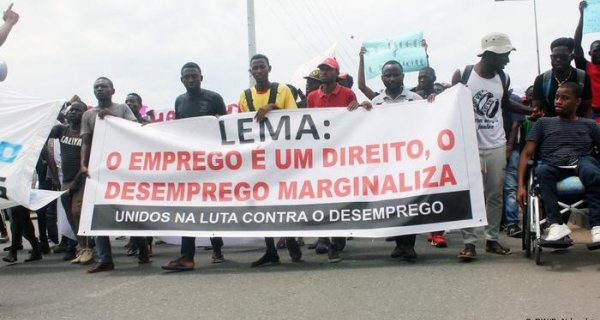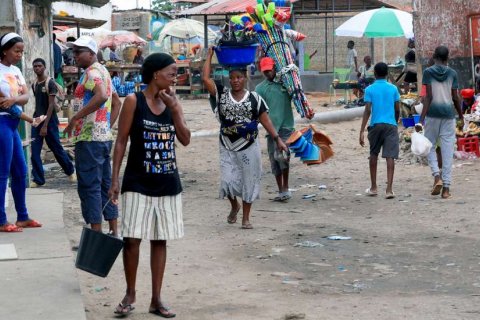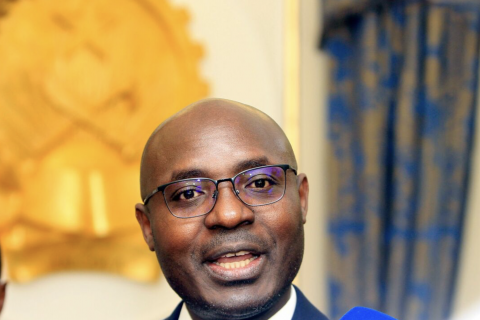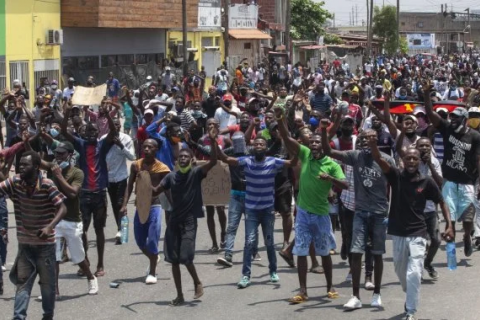In recent decades, Angola has presented a significant unemployment rate, according to the report released by the National Statistics Institute (INE, 2024) approximately 32.3% of the population is unemployed, such situations are recognized by the negative impacts generated in several dimensions of the country's social reality.
The policies and planning adopted by the government with the aim of producing changes and results are the target of countless questions and generate anger and frustration on the part of citizens. It is known that issues intrinsic to unemployment are a concern for developed and developing economies, such as Angola.
The articulation of efficient practices to monitor and combat these demands constitute priority actions. Statistics are then consolidated as an important tool in the absolute implementation of strategies, as they are very useful for the various agents and institutions involved in defining social priorities and allocating public budget resources.
The proposal of a mathematical perspective as an instrument for monitoring and solving real problems allows us to reflect on a set of methods and techniques to be used involving all stages of research, from planning, gathering the maximum amount of information, processing, organization, analysis and interpretation of data to explain various socioeconomic phenomena.
Therefore, statistics plays a fundamental role in monitoring and combating unemployment, offering concrete data and analyzes that can guide efficient policies and procedures centered around the sectors that most need interventions, reflecting actions to structure the welfare state, policies, programs and other initiatives implemented to achieve it.
Mathematics, specifically statistics, enriches the empirical interpretation of social reality and more competently guides the study, formulation and implementation of policies, allowing the articulation of methods and strategies that in a certain way
They contribute substantially to reducing inaccuracies, cooperate in the debate with society in general and support decisions that are ineluctably political with technical information. As discussed previously, statistics provide real data, they have institutionality, periodicity and scope.
Mathematical reflection on such situations, as referenced throughout the text, gives the possibility of collecting and analyzing data, significantly identifying unemployment rates, monitoring the evolution of proposed schemes, identifying opportunities, mobilizing resources and support for initiatives to create different jobs.
Statistics provide individuals with countless skills that allow them to understand the business environment as a whole, offering resources that can help entrepreneurs grow as professionals, "this is the relevance of mathematics and its applicability in daily practice".
It should be emphasized that the success of the broad implementation of public policies depends on many other factors in addition to the quality of initial diagnoses and the adequacy of the design of interventions.
It is evident that statistical methods for solving problems that make up the social sectors are indispensable for the tangible information system of a democratic society, serving the different spheres of government, private companies and the population, with notions about the economy , income distribution and, among other social and environmental conditions in the country.
Mathematics/statistics, in its broad concept, has resources that can support efficient practices for formulating strategies allowing Angola to face the challenges of combating unemployment. Finally, we propose the training of more statistics professionals, willing to act with rigor and responsibility, in order to assist the government in meeting the demands that are consolidated as serious problems in the country.
It is known that in Angola unemployment has increased more and more, whether in the public and/or private sector, given this narrative, we consider it a priority to create viable solutions to obtain satisfactory results and provide all citizens with Angolans a more equitable space possible, where everyone has the same equal opportunities.
Previous
The opinion of... Mariano António Vunge








